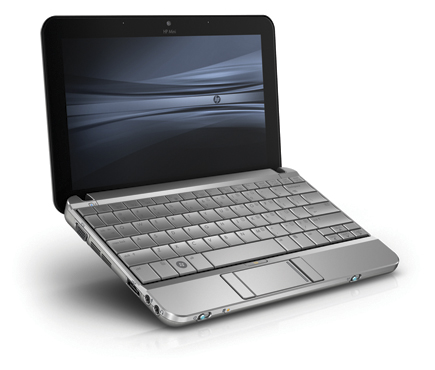Portable PCs For Photographers; How To Sort Out The Best For Your Imaging Needs
When you browse advertisements for notebook computers, you may be led to believe that the only differences between them are scientific-sounding technical specifications. Most descriptions are filled with jargon and computer lingo that—in and of itself—may not be important to you as a photographer. And not all of the argot is immediately understood, even by the geekiest among us. In this article I’ll summarize a quick and simplified rundown on the technical specifications that matter to photographers.
 |
A typical ad lists screen size, processor type and speed, amount of installed RAM, hard drive size (and sometimes speed), operating system, I/O ports, and type of optical (DVD) drive. The suggestion is that more is good and bigger is better—which is true sometimes, but not always. If there’s room, the ad might mention the type of Wi-Fi, brand of graphics card, or some other details—like Bluetooth or Blu-ray Disc compatibility. And all too often the most prominent differentiator—the one that is printed in typeface that dominates the layout—is the price.
Please keep in mind that when you buy a PC you’re buying a box of hardware that’s best suited to a specific set of tasks. One thing I’ve learned from lugging dozens of laptops and notebooks around the world over the past 20 years is that the most important question to ask yourself is “what do I plan to do with it?” If you are in the market for a new portable PC, you should be asking yourself the same question. Sounds elementary, but unless you analyze your options from the viewpoint of how you plan to use the PC, you could make a costly mistake.
People turn to portable PCs instead of desktop models for a variety of reasons. A common reason these days falls under the broad heading of Desktop Replacement. That means that the laptop must have nearly every feature that’s found on a stationary computer. Ironically, many PCs in this category never leave home, despite the fact that they’re transportable. In many cases they’re tethered to a conventional monitor and keyboard via a docking unit and never opened (which is why the screen and keyboard still look new when it’s sold into the “off-lease” market).
Apple MacBook Pro |
|
 |
|
|
In fact, I’ve seen many Desktop Replacement PCs spend their entire service life plugged into an AC outlet, despite the fact that they contain a rechargeable battery. That’s not necessarily wasteful—the battery becomes a de facto UPS (Uninterruptible Power Supply) and keeps the screen lit in the event of a power outage. Overall, however, unless you plan to move your PC into another room at least once in a while, strongly consider buying a desktop model instead. You’ll save money and gain a tremendous amount of expandability. But if you plan to take your digital darkroom on the road, a Desktop Replacement laptop is the right choice for you.
At the opposite end of the spectrum is the netbook. Its claim to fame is maximized portability at a relatively low cost. Many weigh less than 3 lbs and cost less than $500. If you need a PC to access your e-mail and Facebook accounts when you’re on the road, or to check the contents of a memory card or jot a short memo, these pint-sized powerhouses are just the trick. They’re great for travel and offer some amazing battery stamina—up to eight hours continuously. Because of their undersized screens, limited horsepower, and smallish storage space they’re a poor choice for serious image editing. But by and large you can comfortably browse images (or the web) and do some light editing chores.
HP Mini 2140 |
|
 |
|
|
If you’re on a budget or if you’re just sick and tired of banging up your primary PC when you travel, go for an economy model. Available in both Mac and Windows flavors with screen sizes ranging from 12-16”, PCs in this category rarely set speed records but often offer the perfect compromise between cost and performance. In many cases, this year’s economy model was last year’s speed burner. Watch for sales, closeouts, and discontinued model clearances.
- Log in or register to post comments

































